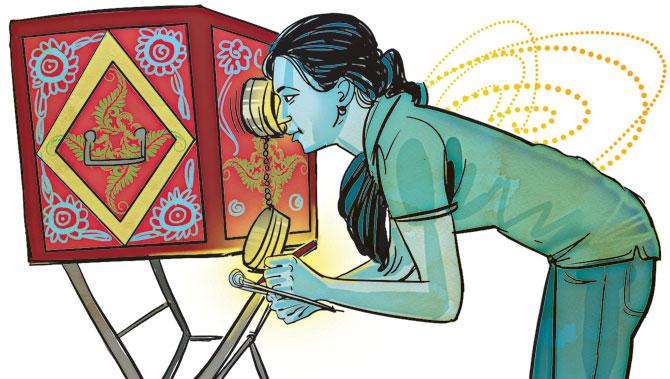Usually, when I’m introduced to people as a film curator and festival consultant, they go, "Wow! You watch films for a living?" Yeah, I admit.

 Usually, when I’m introduced to people as a film curator and festival consultant, they go, "Wow! You watch films for a living?" Yeah, I admit. A lot of the time films are a great pleasure. But when watching them is work, people don’t appreciate that it also means watching enormous amounts of trash, before finding the jewels. Not to mention regularly fielding that loaded question, "So, how did you like my film?"
Usually, when I’m introduced to people as a film curator and festival consultant, they go, "Wow! You watch films for a living?" Yeah, I admit. A lot of the time films are a great pleasure. But when watching them is work, people don’t appreciate that it also means watching enormous amounts of trash, before finding the jewels. Not to mention regularly fielding that loaded question, "So, how did you like my film?"
ADVERTISEMENT

As a film critic, I get invited to press previews, where the entire audience consists of critics. Often, they have decided that they will have to "suffer" the film, even before the screening has begun. Equally awful, a large number of critics now write notes on their mobile phones, rather than in diaries — and so, the theatre is full of supremely annoying, blue glare of mobile phone screens. The younger lot, desperately competitive, start tweeting their views on the film from their phones barely 10 minutes into it. At this week’s press preview of Phantom, I spent the entire time with my palm raised to the right side of my face, to block out the glare of a phone a girl held next to me. She was busy typing review notes on her phone, occasionally glancing up to watch the film.
My sister Sarayu once gifted me an American ‘film critic’s pen’ that lit up with a small glow, so you could read what you wrote in a dark theatre. Proudly, I inaugurated it when I was on the FIPRESCI International Film Critics’ Jury at Cannes. But I realised that it was distracting to others, and soon gave the pen VRS. I continue to scribble notes in a regular pen and diary, in the dark — later, often struggling to decipher my overlapping scrawls. But the mobile phone crowd has no compunctions. Somebody should invent ‘film critics’ glasses,’ with blinkers that cut out the glare from the sides.
This is why I really enjoy watching films on the big screen, in a theatre, with the paying public. Gaiety-Galaxy in Bandra is one of my favourites, since Deepak in Parel got swankified. Although it is called G7, since it mushroomed into seven screens, its audience remains resolutely single screen, uninhibitedly whistling during a film, whooping during Salman Khan’s entry, pressing like sardines in the ticket queue, haggling for tickets with touts, and taking selfies with posters of their favourite stars. The frisson of the audience response is a great kick.
Usually, in my line of work — programming/pre-selecting the best films of the year or curating films around specific ideas — as film festival deadlines loom, filmmakers sometimes send DVDs or videolinks of unfinished films. Sometimes, it is a ‘rough cut’, or a version without songs, background music or sound mixing, or without colour correction or English sub-titling. Over the last 20 years, I have learnt to instinctively judge the inherent quality of incomplete films. Naturally, I always assume the film will have a vastly better impact when it is complete.
My job is to source all kinds of films from all over South Asia, pick the best, and recommend them to festivals with whom I work. I help a selection committee sitting in an air-conditioned theatre in Berlin or Dubai — who may have never been to India — appreciate why a particular Indian or South Asian film is new, refreshing, politically daring or subversive in the Indian or Asian context, and deserves to be supported. When a film I have recommended is selected at an international film festival, nothing is more rewarding for me than to see an Indian filmmaker shine on an international stage, or get a standing ovation or walk the red carpet, overwhelmed by it all. I feel like a sahriday ("like-hearted", empathetic companion), privileged to have been a small part of their journey. For films have given me much more than a living — they have brought me a lifetime of friendships and travel, given me insights into life, and enriched my soul. Without film and filmmakers, I wouldn’t be who I am.
Meenakshi Shedde is South Asia Consultant to the Berlin Film Festival, award-winning critic, curator to festivals worldwide and journalist. Reach her at [email protected].
 Subscribe today by clicking the link and stay updated with the latest news!" Click here!
Subscribe today by clicking the link and stay updated with the latest news!" Click here!






